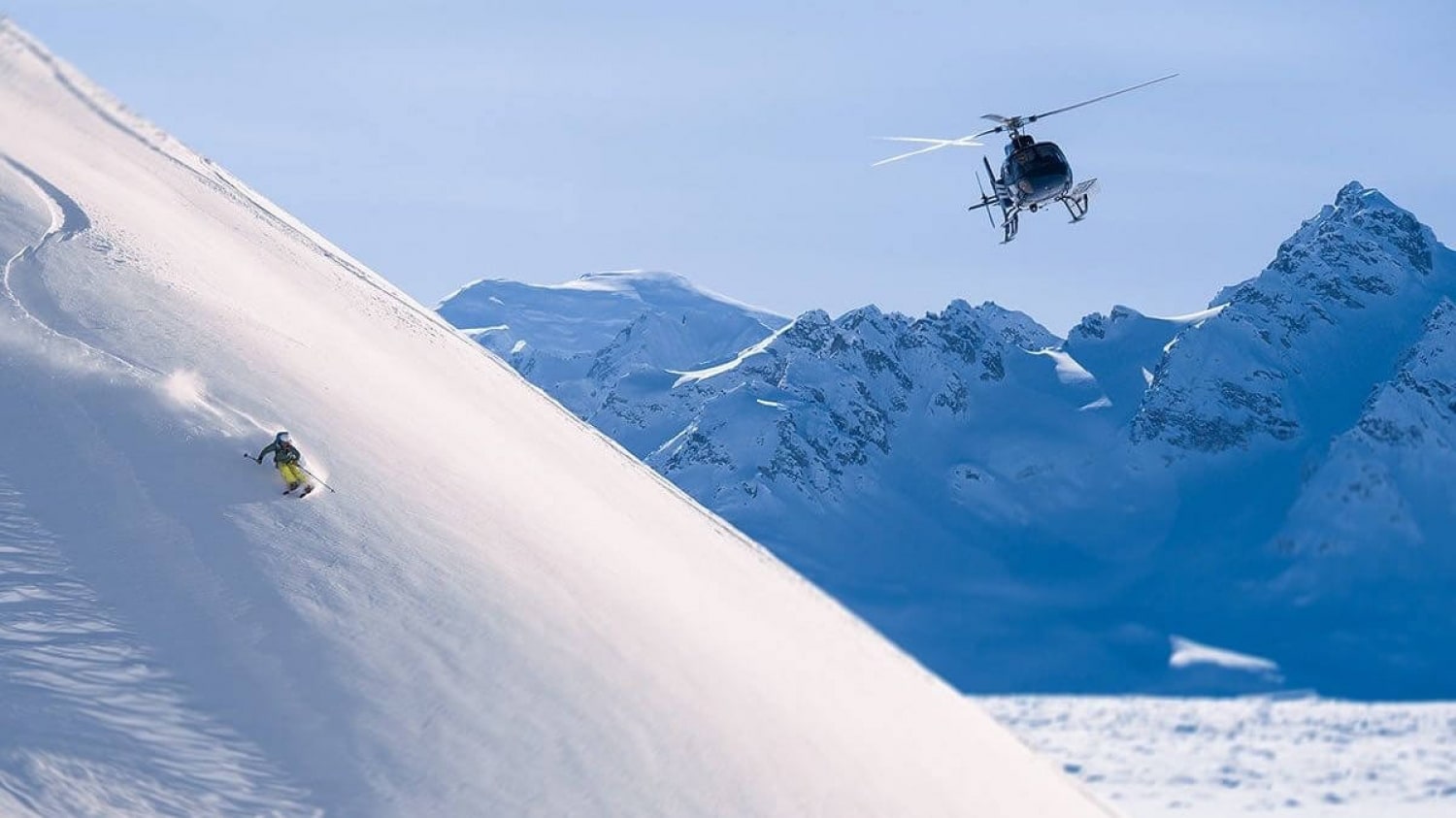
Where is the Birthplace of Modern Skiing?
According to the International Skiing History Association, the art of skiing dates back some 3,000 years when archaeological evidence across the Eurasian arctic region shows evidence of primitive skis. But surely that doesn’t reflect today’s modern skiing with perfectly groomed slopes and high-speed lifts. So where do you go to find the birthplace of modern (mechanized) skiing?
Skiing history authors Mort Lund, John Allen, and Seth Masia all suggest the period of modern skiing did not develop until after the turn of the 20th Century when the first motorized lifts were installed. This is confusing as heel-strap bindings were created by Sondre Norheim in the 1840s and then sidecut skis again by Norheim in the 1870s.
We found this question incredibly challenging to answer. So instead of deciding on a precise starting point (we did include several candidates), we chose to include several key areas which we thought reflected important milestones in the history of the modern sport. This list was a pleasure to create for you. We hope you enjoy reading.
St. Moritz, Switzerland
Summertime Splendor
Before it was known for its skiing, St. Moritz had long been a summertime destination. Royalty, international clientele, and elite celebrities all came to visit the mineral springs first discovered some 3,000 years ago. Wintertime activities were almost nonexistent until hotelier Johannes Badrutt wagered his legendary bet.
The Bet Of A Lifetime
Operating one of the premier hotels in St. Moritz at the time, the Kulm Hotel, Badrutt welcomed a steady stream of wealthy guests. One particular evening, as the legend goes, Badrutt wagered four of the wealthy British guests that he would cover the costs of their trips if they returned in the wintertime and did not enjoy it. They scoffed at the simplicity of the offer. However, Badrutt knowing full well the pleasant climate insisted his guests return. They did return and as Badrutt predicted they enjoyed clear blue skies and pleasant weather. The rest is history as the word got out in London and beyond that, there was a wintertime paradise high in the Swiss Alps.
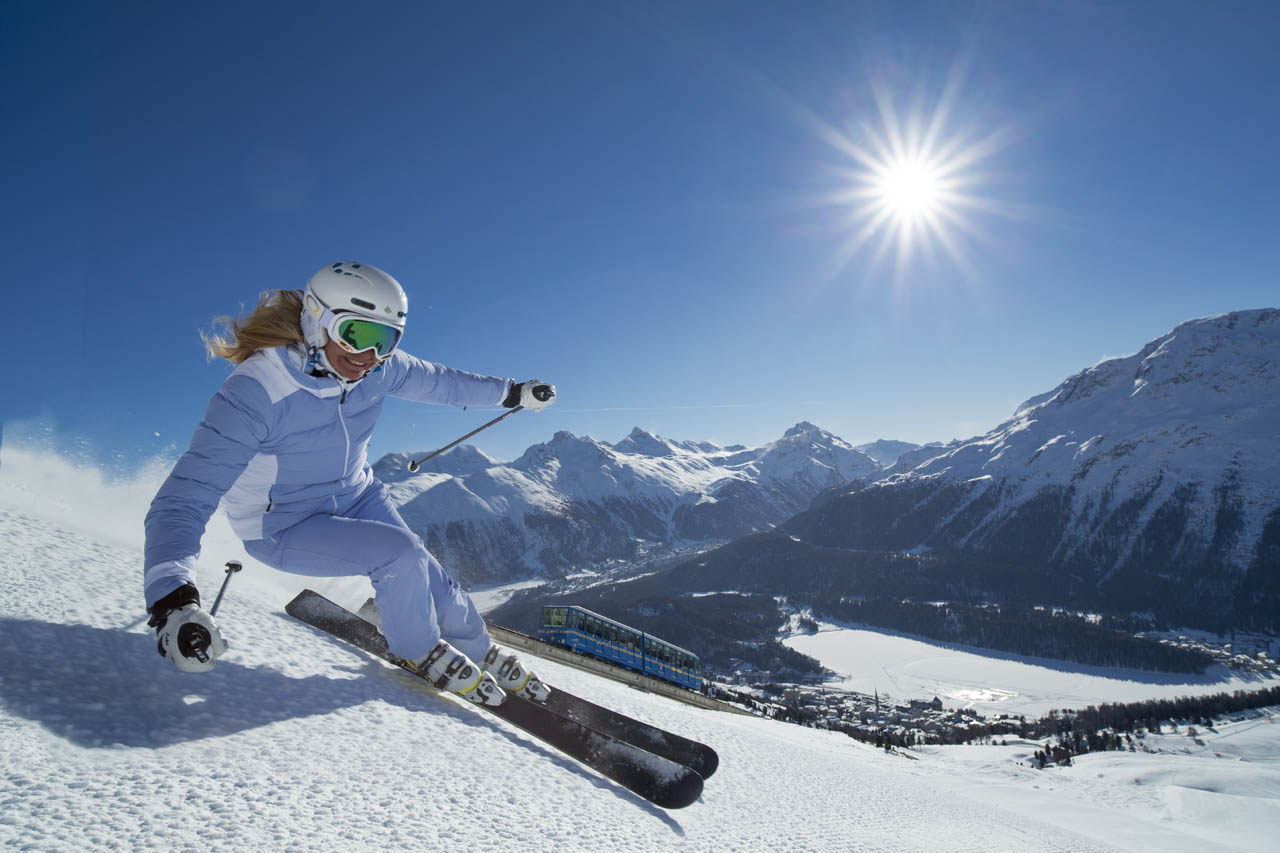
Glitzy & Glamourous Modern Skiing
Today, skiing in St. Moritz is fast-paced with a modern lift-access system spread across three huge main areas: Corviglia, Diavolezza, and Corvatsch. There are also six smaller sites nearby that make up St. Moritz. Corviglia has the easiest access from the base and tops out at Piz Nair whose summit sits at 10,029 feet of elevation. Corvatsch caters to more of a freestyle approach offering glacier skiing and more challenging terrain. Don’t be fooled by the opulence and glitz around town. They take their skiing seriously here in St. Moritz. Lifts start spinning between 7:45 am and 8:00 am.
World Class Après
It would be a great disservice not to mention the world-class après scene at St. Moritz as there are few true rivals. St. Moritz is known for its extraordinary elegance and opulent lifestyle. Premier après spots usually start on the Corviglia side with Schirm bar and Alpine Hutte being popular mid-mountain stops. As the reverie picks up, the crowd moves downtown and spreads out across a huge selection of unique opportunities. Unparalleled sophistication and specialty libations are the ante for most establishments. As the nightlife continues the clubs, bars, discotheques, and even a casino tempt you with their endless entertainment. Just remember, Mr. Bond, St. Moritz isn’t cheap so be sure to bring your wallet.
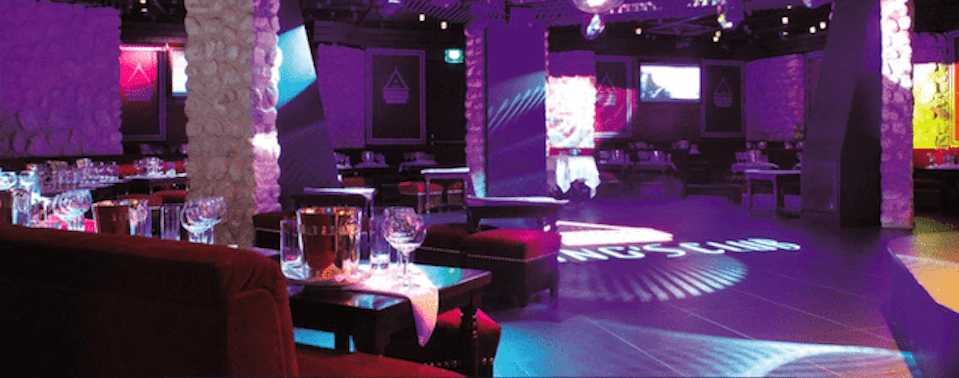
Mountain Stats
- Annual Snowfall (inches):
- Summit Elevation (ft.): 9,925
- Vertical Gain (ft.): 3,835
- Skiable Acres: 190
- # pistes / Lifts: 87 / 25
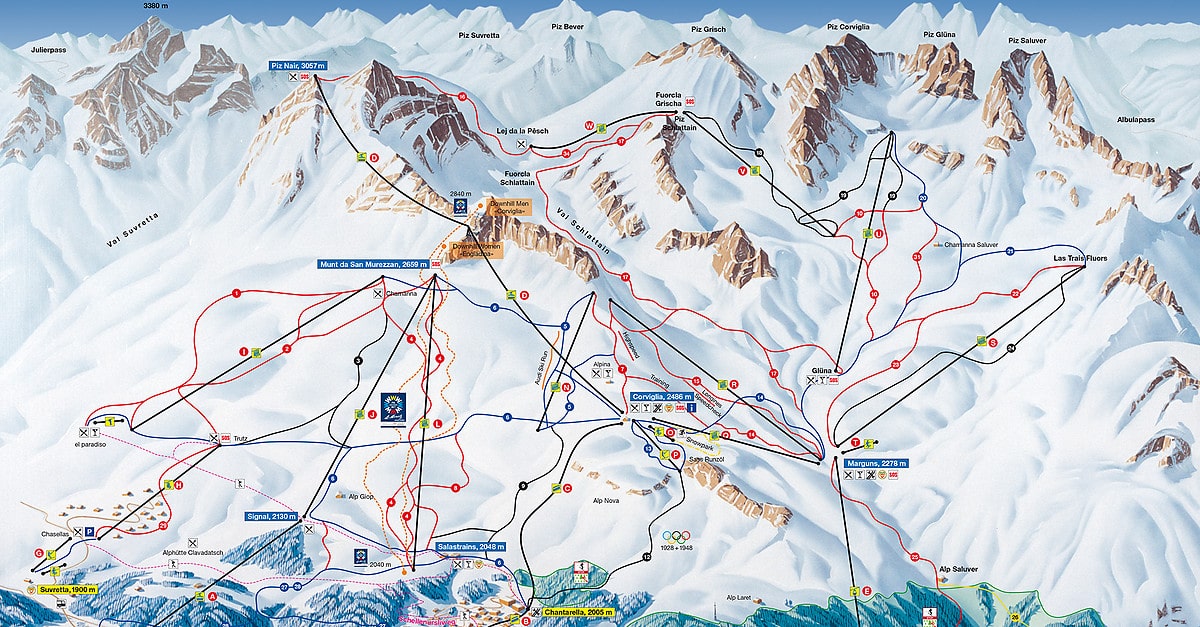
La Clusaz, France
Small Town, Big Style
Tucked away high in the Alps of eastern France along the Aravis Mountain Range lies the ski resort of La Clusaz, the world’s oldest operating ski resort. According to Snow Magazine writer Roger Fulton,
“La Clusaz is a picture-postcard pretty haute-Savoyard village in the heart of the wonderfully scenic Massif des Aravis, just 30km (19 miles) from the beautiful lakeside town of Annecy and less than an hour’s drive from Geneva.”
In 1902, the first modern road was finished linking the nearby town of Annecy. It’s considered by many the start of winter activities here. 1907 saw the first organized ski competition, followed by its first cable car in 1935 and then the official French designation of a winter and mountaineering resort in 1969. Thanks to strict local governance and building regulations, the culture has been preserved with “traditional chalets designed and constructed to blend harmoniously with the village and surrounding landscape.”
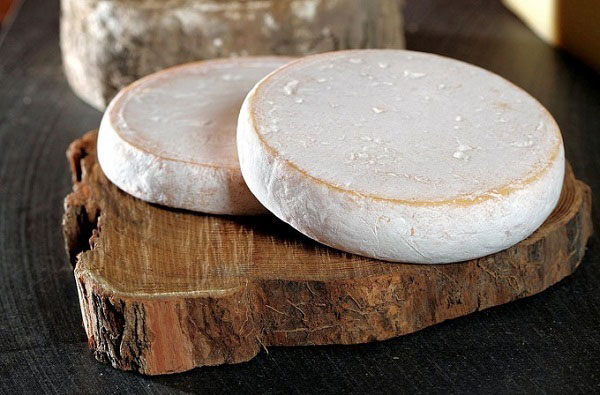
‘Massif’ Vertical
In regards to skiing, La Clusaz is internationally renowned for its steep slopes. It’s also home to freestyle skier Candide Thovex. Irrespective of the relatively small town, the ski resort itself is enormous sprawling across five interconnecting Massifs. It also boasts one of the world’s biggest vertical drops, more than 13,500 feet off the summit of Balme back down to the village.
A mountain shuttle helps guests shuffle around the resort that claims 137 miles of slopes. One more interesting fact about La Clusaz is that it operates the world’s first Telemix lift combing both gondolas and chairs on the same lift!
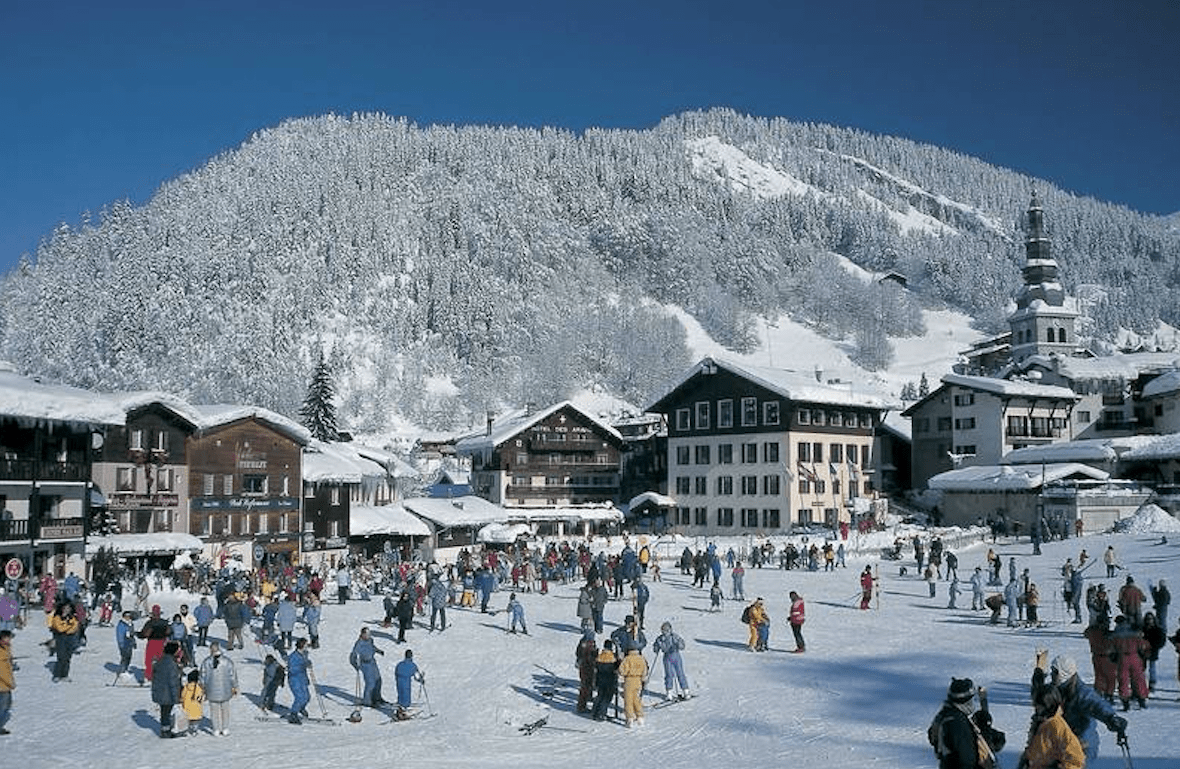
River Dancing
As if that weren’t enough, the après scene is reportedly festive and lively with regularly visiting guests from nearby Geneva. There’s plenty of entertainment available to those interested, especially the acclaimed L’Ecluse discotheque and its glass dancefloor above the river.
Mountain Stats
- Annual Snowfall (inches): 260
- Summit Elevation (ft.): 8,530
- Vertical Gain (ft.): 4,921
- Skiable Acres: 220
- # Trails / Lifts: 49 / 85
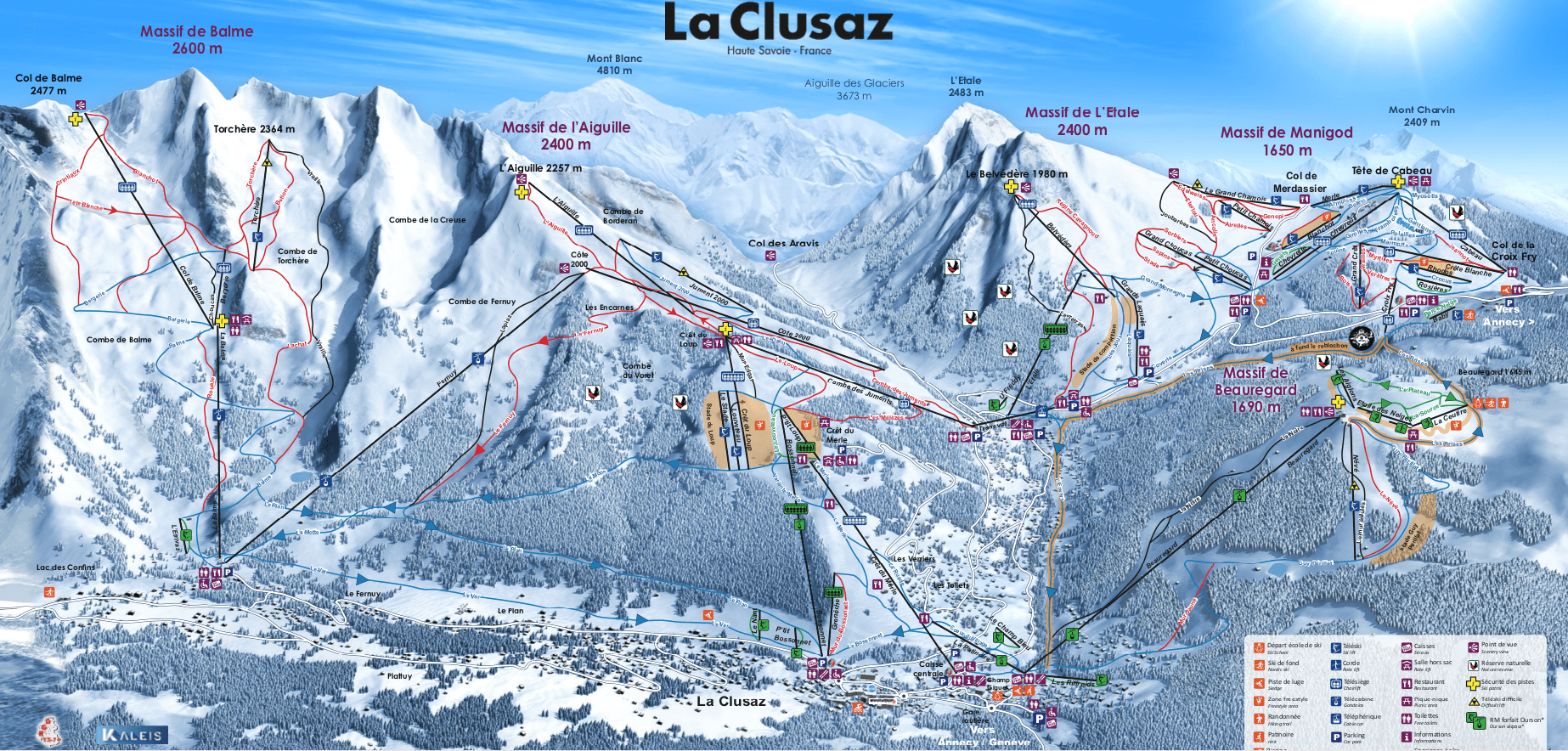
Howelsen Hill, Colorado
A Pioneer in U.S. Ski History
Howelsen Hill (HH) in downtown Steamboat Springs, Colorado, holds several important distinctions in skiing history. It’s the oldest continuous running ski operation in North America and over the course of its prestigious history has produced more than 90 Olympians (making over 150 appearances), 22 members of the Colorado Hall of Fame, and 13 members of the U.S. Ski Hall of Fame. HH is designated a Pioneer Ski Resort by the International Skiing History Association.
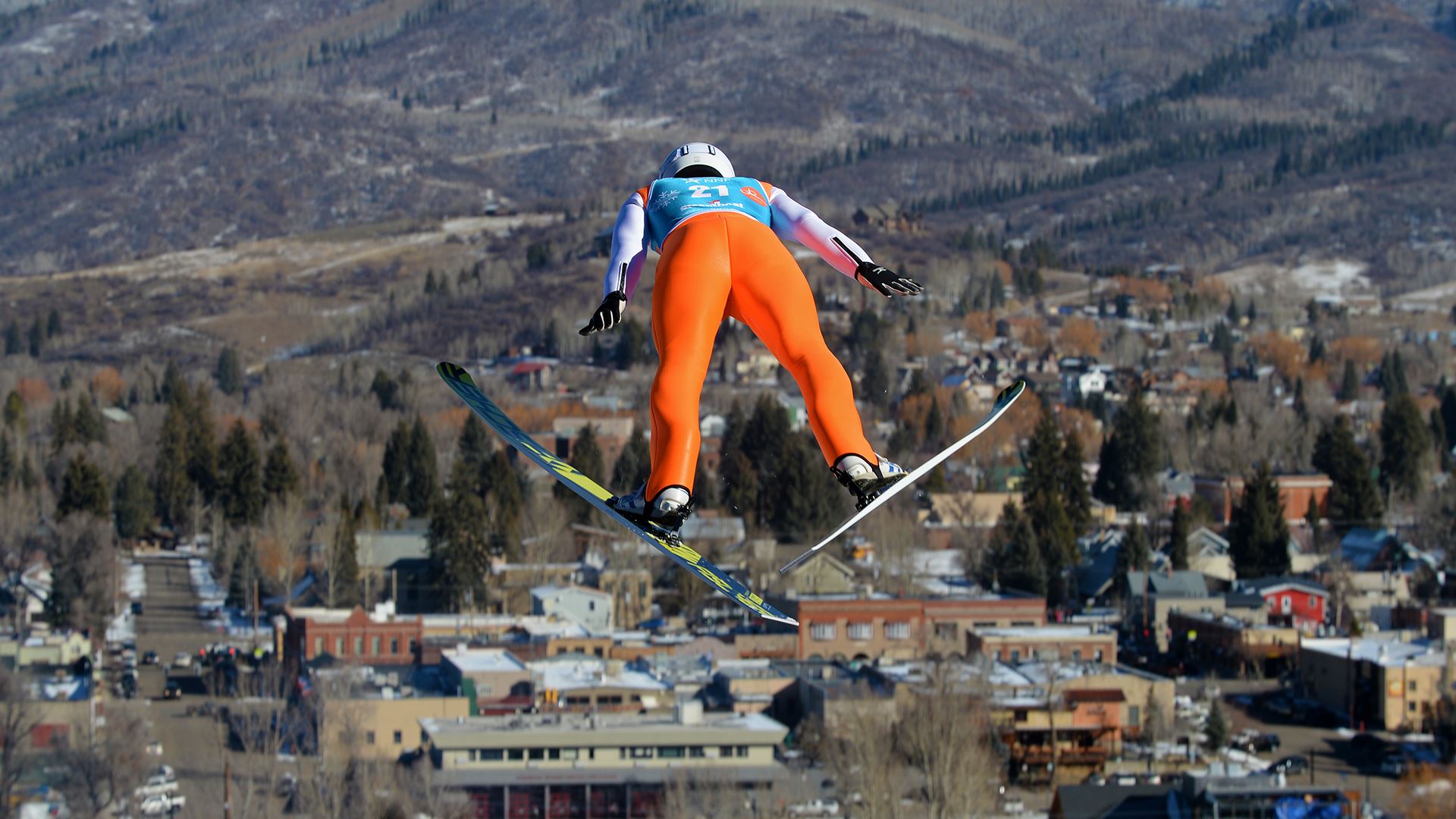
The Norwegian Start
HH started as a dream for Carl Howelsen (born Karl Hovelsen) who arrived from Norway in 1913. Shortly thereafter he introduced recreational aspects to the sport of skiing, namely, ski jumping and cross-country competitions. The following year in 1914 Howelsen partnered with the Steamboat Springs Winter Sports Club to build a ski jump exhibition for the 1st Winter Carnival. According to Colorado Ski History, the exhibition was met with modest success and,
“Convinced that ski jumping record could be broken if he had a steeper slope, [Howelsen] looked to the north-facing hill across the river that abutted Elk Park. That fall, trees, and brush were cleared and a jump built, ready for the town’s second Winter Carnival. The slope was later named Howelsen Hill in 1917.”
Focused on Ski Jumping
HH added alpine activities in 1931, but to this day remains primarily focused on ski jumping and training. They still claim title to what Colorado Ski Country News calls, “the largest and most complete natural ski jumping complex in North America.”
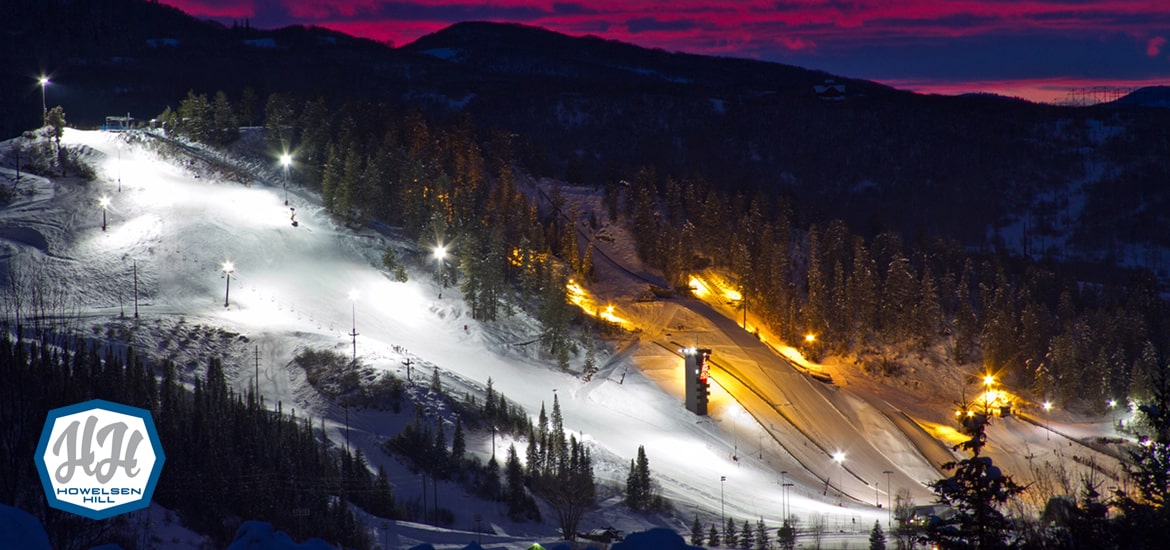
Ski Free On Sundays
Today, HH is a popular lunchtime skiing destination because of its proximity to the downtown Steamboat. It’s also a cool way to leisurely peek at the ski jumping and training facilities. And if that’s not enough to get you to visit, then how about the Steamboat’s City Council approving free skiing on Sundays all season long?
Mountain Stats
- Annual Snowfall (inches): 170
- Summit Elevation (ft.): 7,136
- Vertical Gain (ft.): 440
- Skiable Acres: 50
- # Trails / Lifts: 17 / 4
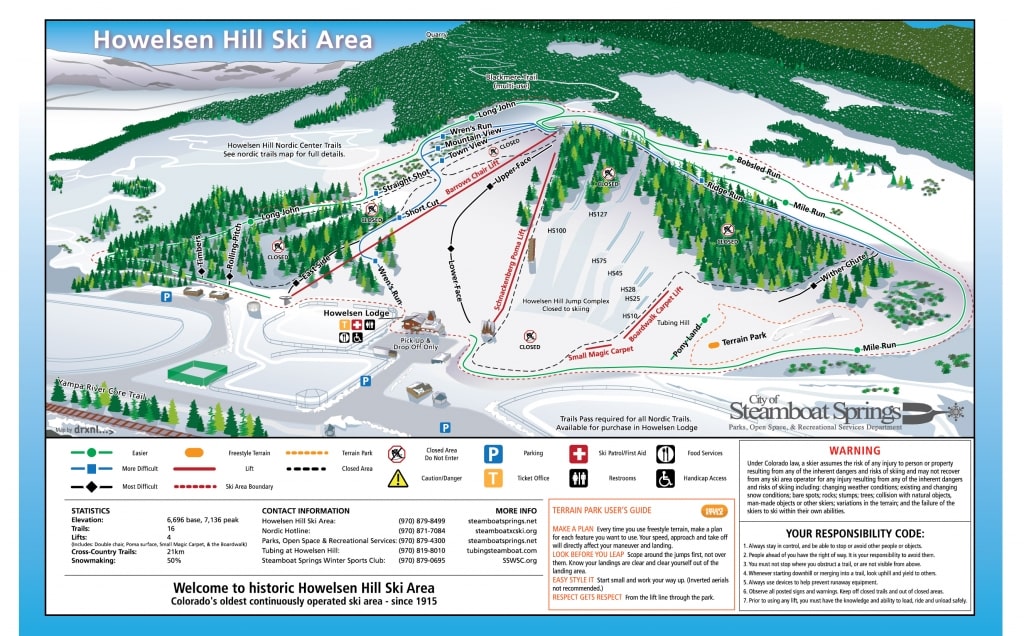

Trysil Ski Resort, Norway
Trysilfjellet
Close to the Swedish border, and a mere two hours drive from Oslo sits Norway’s largest mountain Trysilfjellet at 3,714 feet of elevation. Trysil Ski Resort is Norway’s largest ski resort, interconnecting four separate areas (Turistsenter, Hoyfjellssenter, Hogegga, and Skihytta.) It’s also home to the world’s first ski competition (1855) and the oldest ski club Trysilgutten Ski Club (1861).
Distinct Sides
The skiing here is distinct and rarely duplicated as each of the three skiable faces has its own characteristics. It’s a perfect way to accommodate groups with varying abilities, especially those families who like to ski together. The front side up high is mostly steep black runs in the trees while the faces near the village resort are mostly green and more welcoming to beginners. Trysil also offers a first-rate ski school including English-speaking instructors (who in customary Scandinavian style are both positive and encouraging).
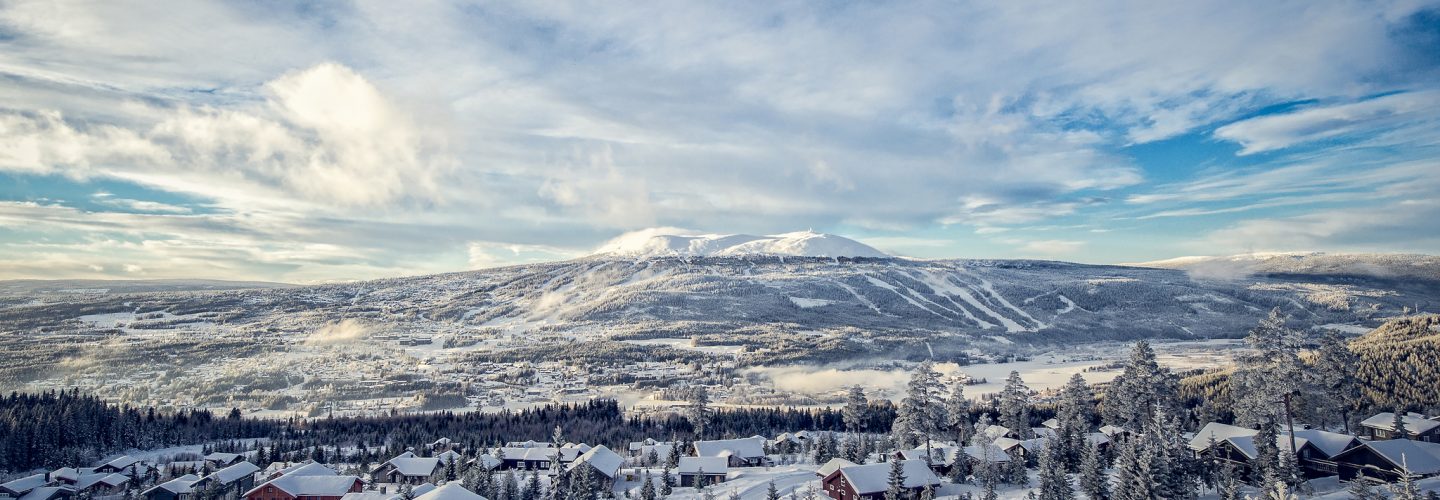
Social Schedule
While Trysil is undoubtedly part of skiing history, that doesn’t necessarily make it obsolete. In fact, the town is hopping (no pun intended) with more than 30 restaurants and several dozen bars and nightclubs to choose from. According to Snow Magazine, the town’s younger crowd likes to showcase that unique Scandinavian flair, and occasionally, let it all hang out.
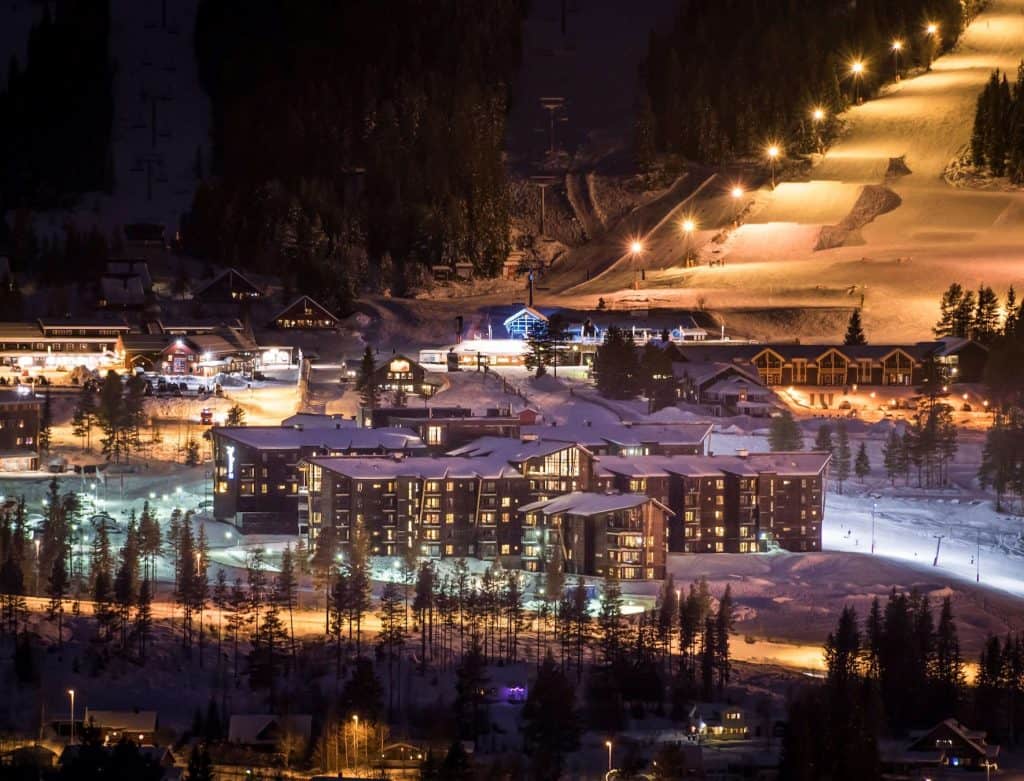
Mountain Stats
- Annual Snowfall (inches): 200
- Summit Elevation (ft.): 3,609
- Vertical Gain (ft.): 2,247
- Skiable Acres: 44 miles of prepared slopes
- # Trails / Lifts: 68 / 30
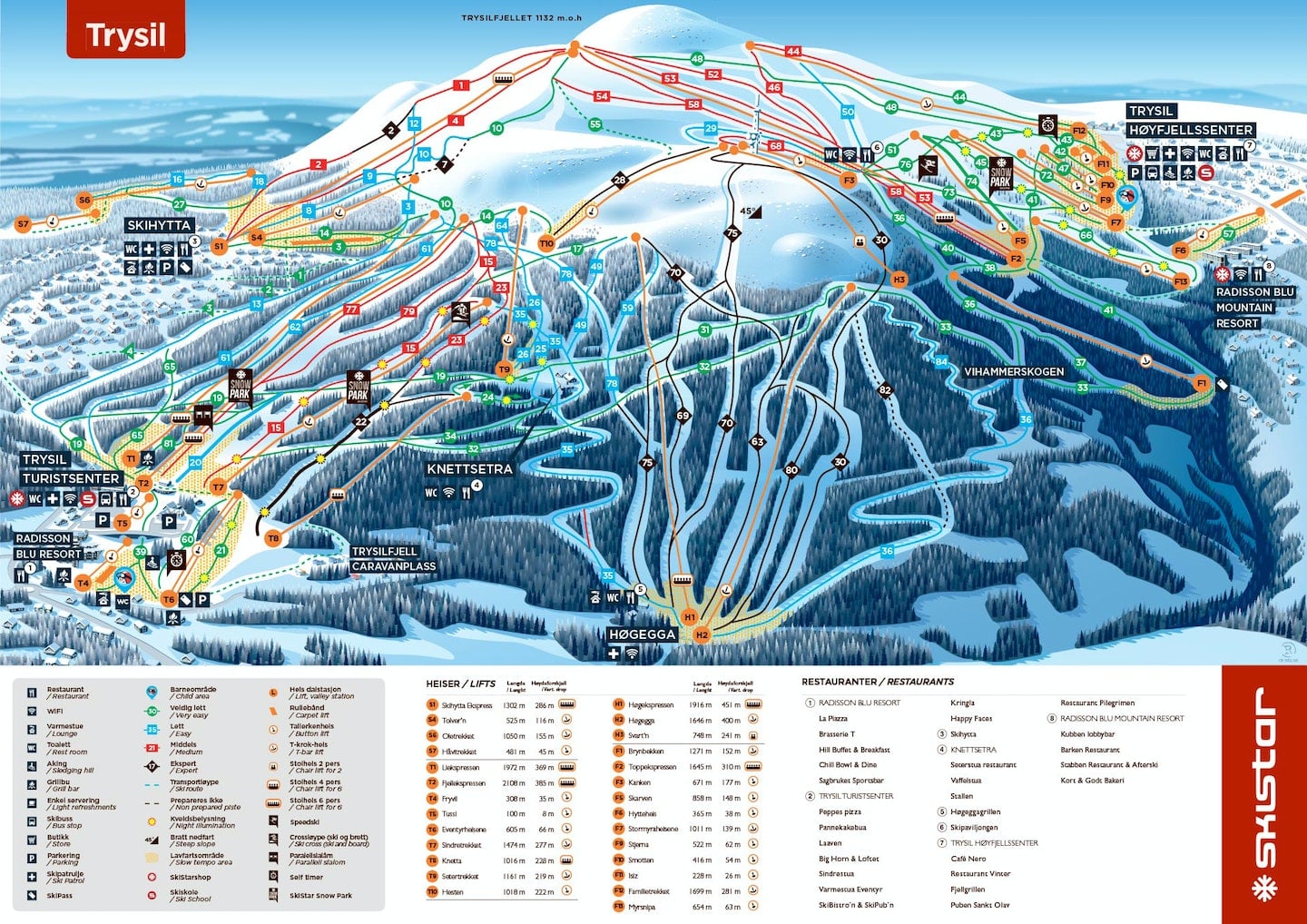
Niseko Moiwa Ski Resort, Japan
An Austrian Beginning
In a country where more than 70% of the land is covered in mountains, you might imagine Japan to have an interesting skiing history. And it does, just not one you would have expected. 1902 marked a horrible year for the Japanese army after a disastrous mountain accident cost the lives of more than 200 soldiers. Then in 1910, still recuperating from the loss, and looking at skis as a means of effective travel, the Japanese army hired Austrian Major Theodore Eldef Lerch to teach them. Major Lerch, a former pupil of alpine skiing founder Matthias Zdarsky, was working as an exchange officer when the Japanese first noticed his extraordinary talents.
Soon after his discovery, Lerch taught his first lesson to the Niigata Army Infantry Regiment in Niigata Prefecture, Japan. The lesson is so famous in Japanese skiing history that they now hold a national celebration each year on January 12th calling it, “Ski Day.”
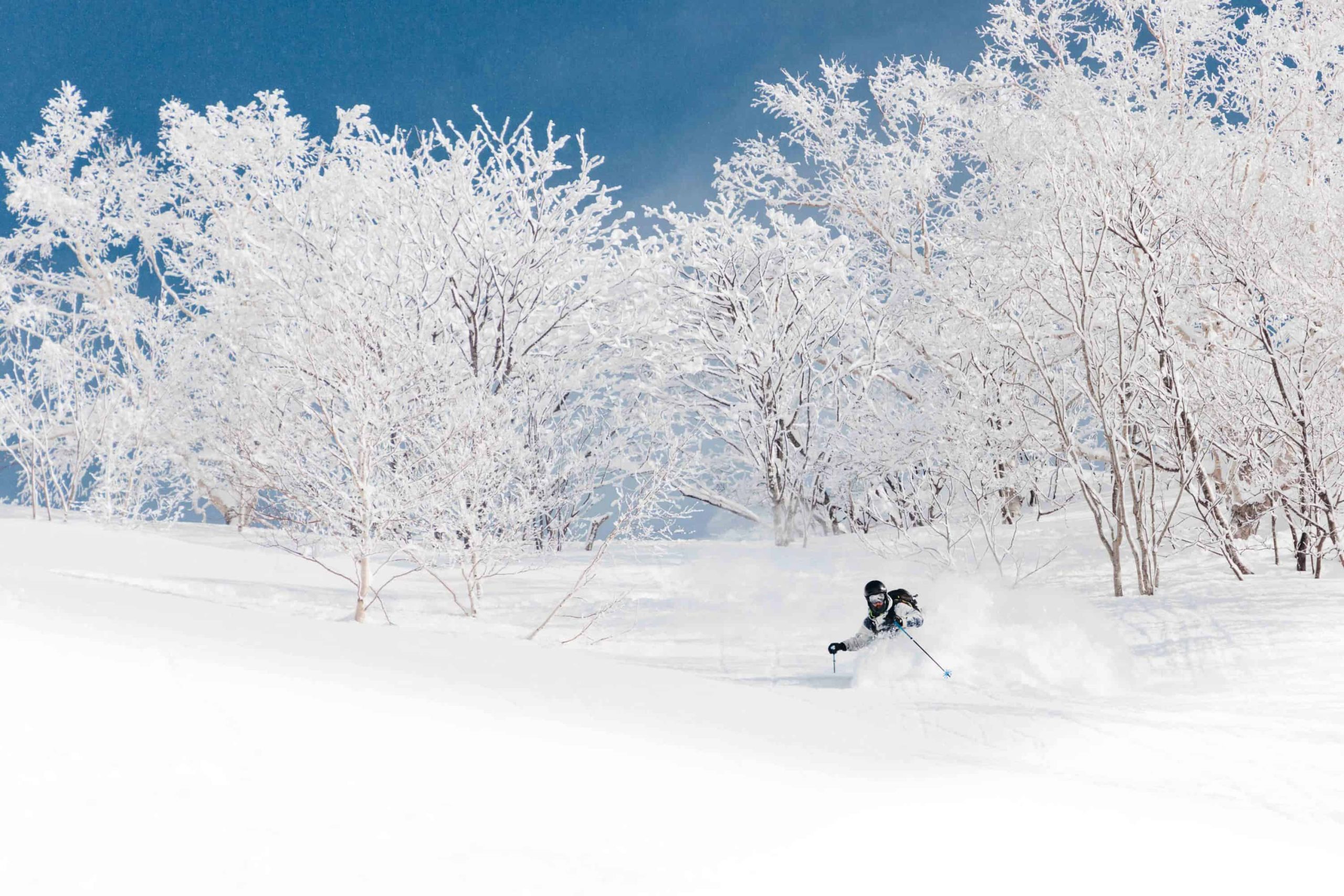
Japan’s Oldest Ski Resort
Although specific dates are unclear, Moiwa is arguably the oldest ski resort in Japan starting in 1919. At this point in time, the skiers themselves would climb up Mt. Yokei and then ski down. It wasn’t until 1966 that the resort officially opened as the Niseko Moiwa Ski Resort.
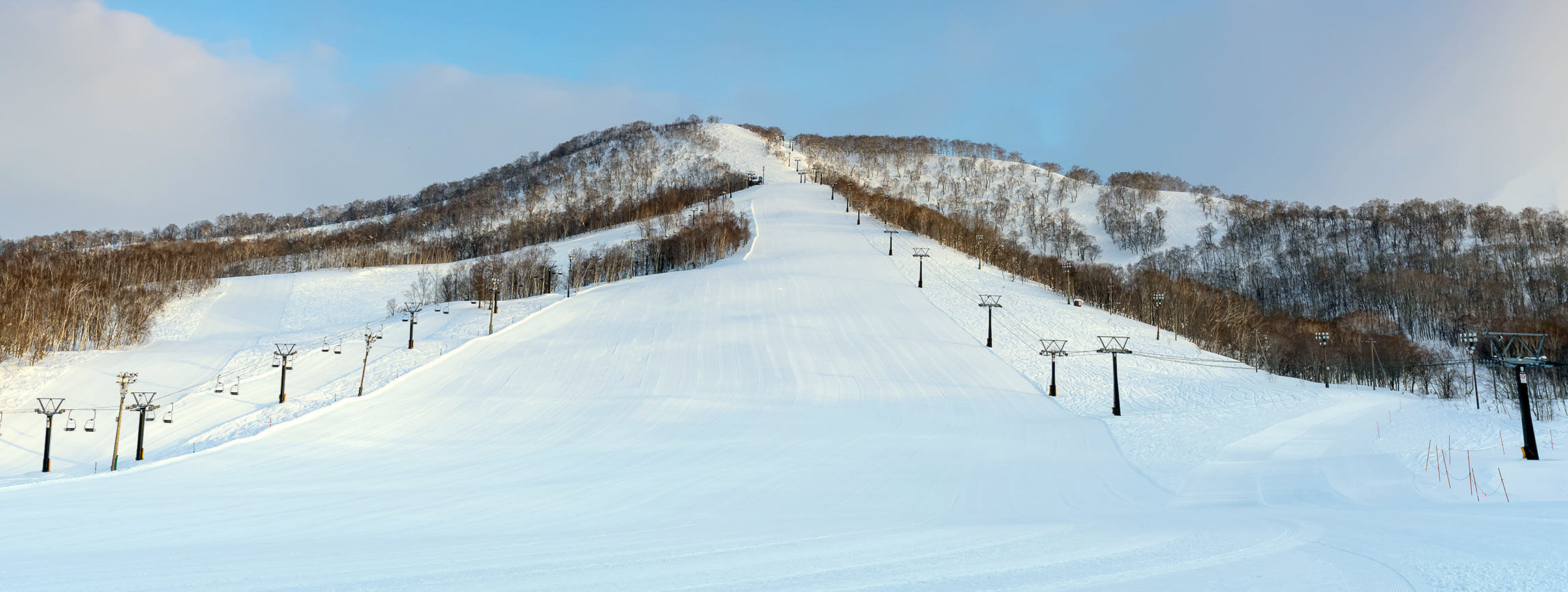
Charm, Culture, and JaPOW
The friendliness of the local people is apparent everywhere. Their gentle demeanors and Japanese charm are naturally welcoming and continue to this day. However, if the traditional culture is warm and welcoming, then it can also be said that their snow is significant, if not serious. Niseko is world famous for its super low water content storms creating light and fluffy powder and aptly titled, “JaPOW.” Moiwa is especially blessed in this regard receiving more than 540 inches of snowfall annually. Moiwa is not just one of the snowiest regions of Japan, it is also one of the snowiest in the world.
Mountain Stats
- Annual Snowfall (inches): 540
- Summit Elevation (ft.): 2,995
- Vertical Gain (ft.): 1,540
- Skiable Acres: 459
- # Trails / Lifts: 25 / 4
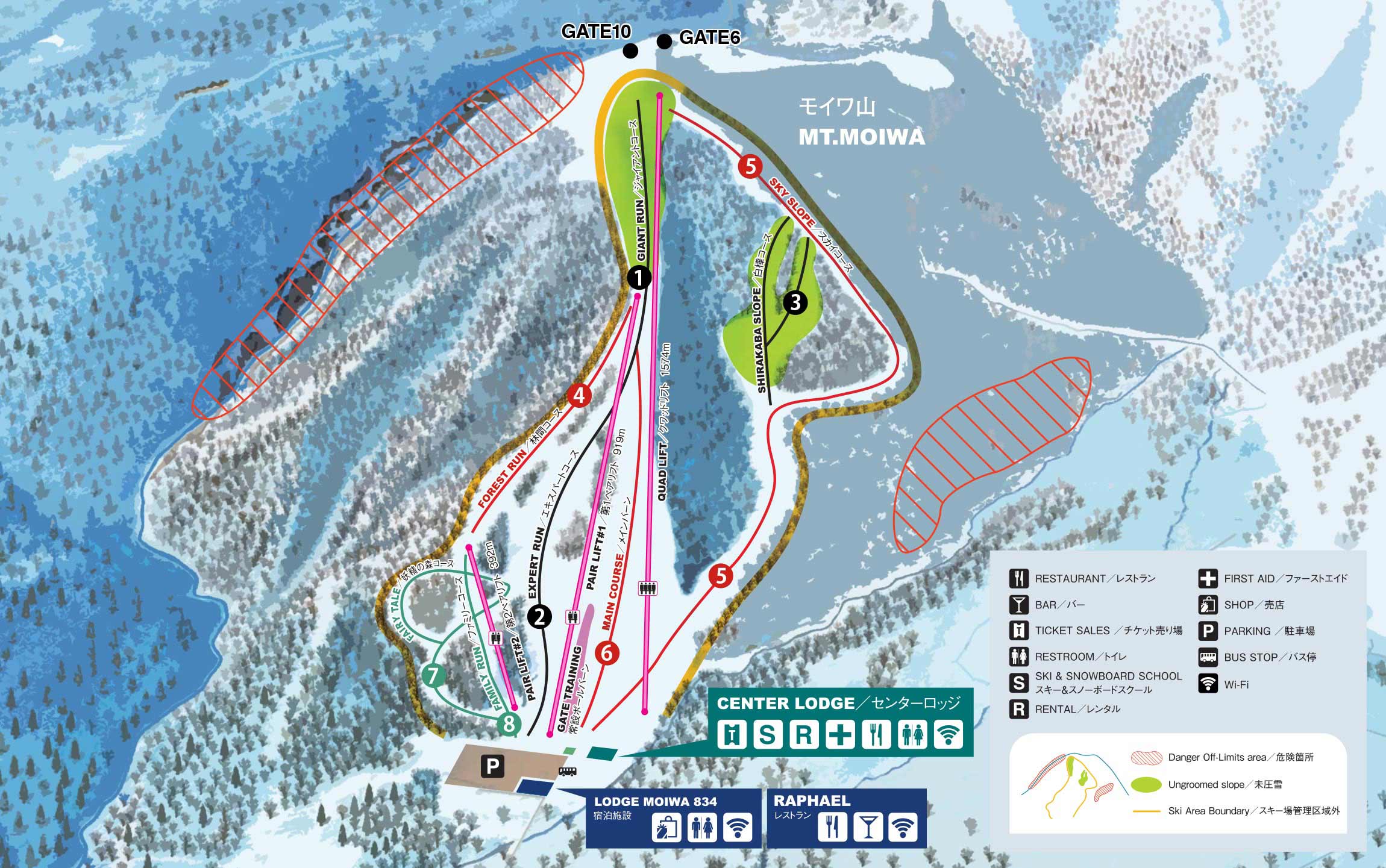
Ski Portillo, Chile
Norwegian Railroad Scouts
Just 88 miles outside of Santiago, high in the rugged Andes Mountains, lies a special ski resort. A resort whose beginnings can be traced all the way back to the 1880s when English engineers were hired to build a railroad. Scouting ahead of the others were two Norwegian miners by the names of Elmer Rosenquist and Michael Hermumdsen, who by happenstance became the very first skiers to traverse Portillo’s slopes.
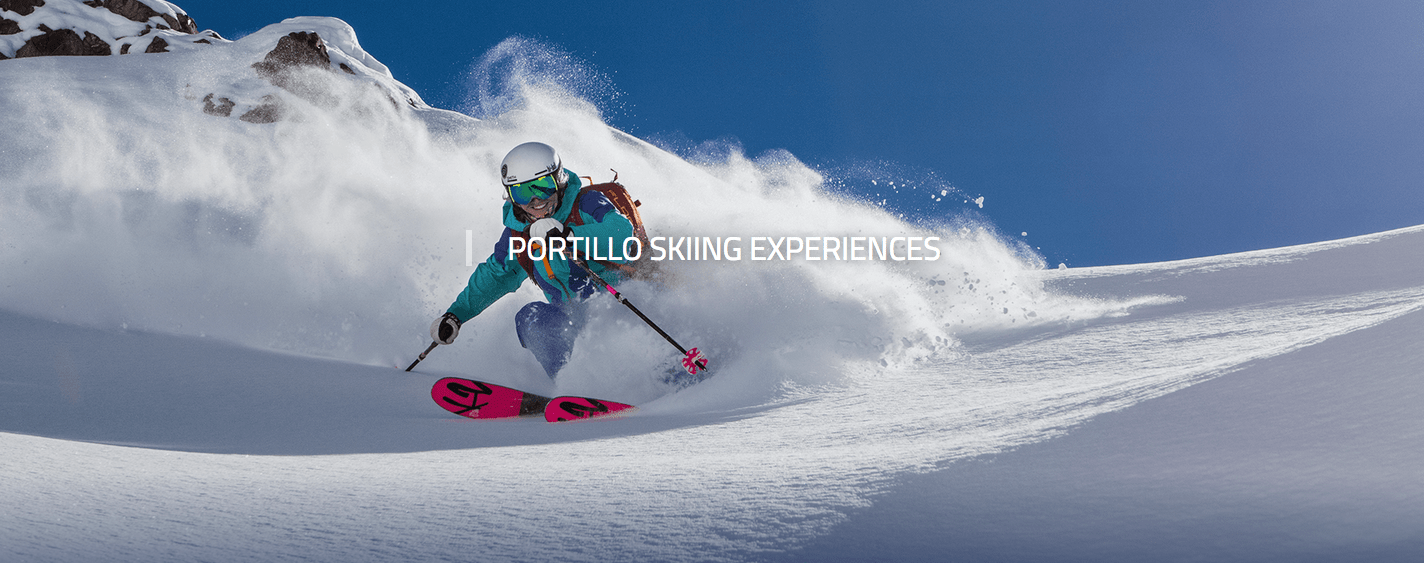
From ‘Railroad-Assist’ to Alpine World Championships
After the railroad work was completed in 1910, many recreational skiers tried (successfully) to jump on the train and get back up the hill. This ‘railroad-assist’ was the first ski lift in South America.
With so much fun and such great snow, word quickly spread about Portillo. In the early 1930’s skiers set up a tow lift and a basic hut for overnight stays. From there, growth sputtered for decades under ownership by the Chilean government, until a pair of North American ski magnates by the names of Bob Purcell and Dick Aldrich purchased the resort in 1951. The buyers brought in Henry Purcell to be the manager, a position he still holds to this day. They ambitiously targeted and then held the prestigious Alpine World Championships in 1966, firmly establishing Portillo’s work in skiing history.
The ‘Cruise Ship’ Sails Year-Round
The Andean mountains surrounding Ski Portillo are jagged and receive huge storms capable of dropping several feet of snow at a time. Titled towards the more experienced skiers with more than 55% of the terrain either advanced or expert, Ski Portillo holds nothing back from its guests. The famous yellow hotel, or ‘Cruise Ship’ as it is called, now takes three and four-day mini breaks, as well as week-long reservations.
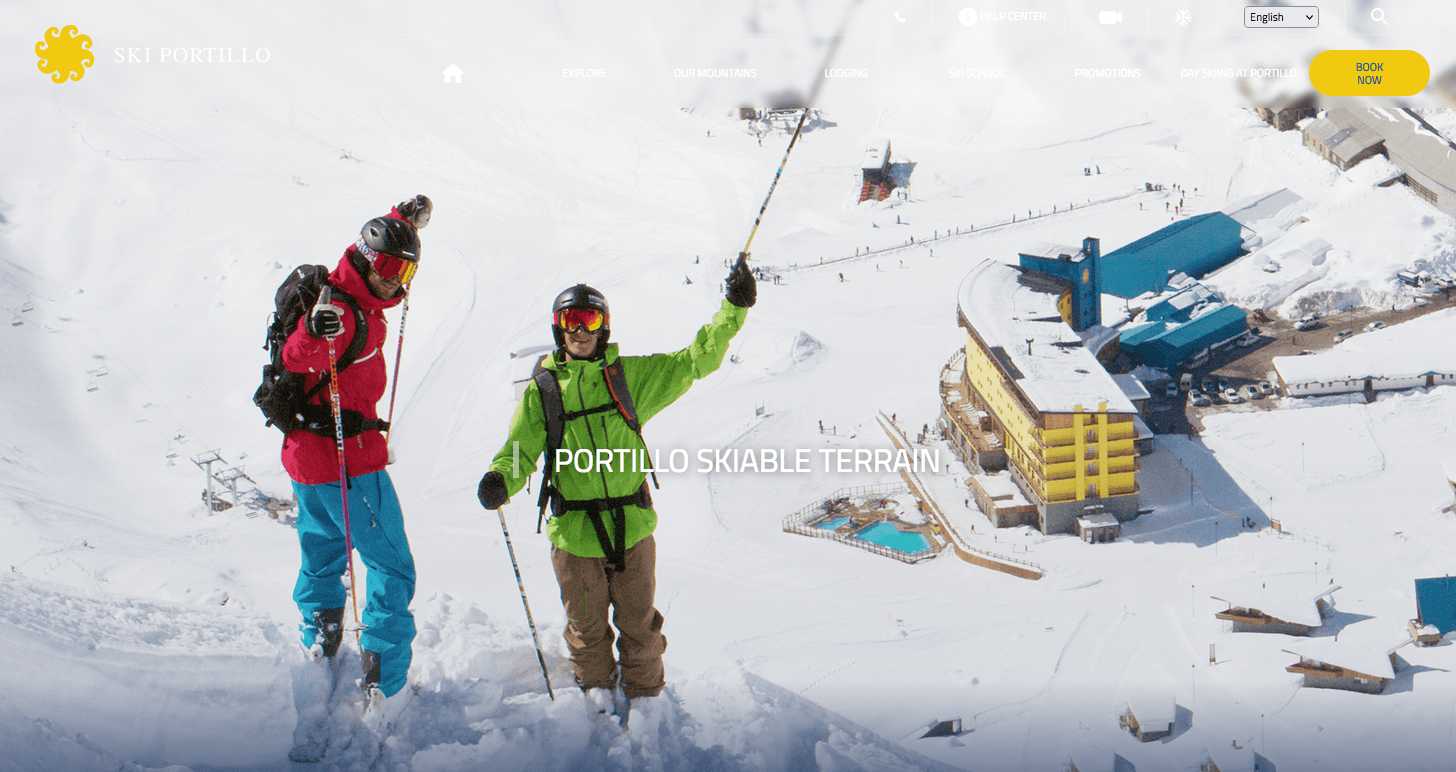
Ski Portillo is also known for hosting serious year-round skiers like Chris Davenport and others who now call this their summer home. This shouldn’t come as too much of a surprise after learning that the resort’s first ski instructor was French champion Emile Allais, followed by the famous Norwegian ski racer in the 1950s, Stein Eriksen.
Mountain Stats
- Annual Snowfall (inches): 200
- Summit Elevation (ft.): 10,860
- Vertical Gain (ft.): 2,734
- Skiable Acres: 1,235
- # Trails / Lifts: 35 / 14
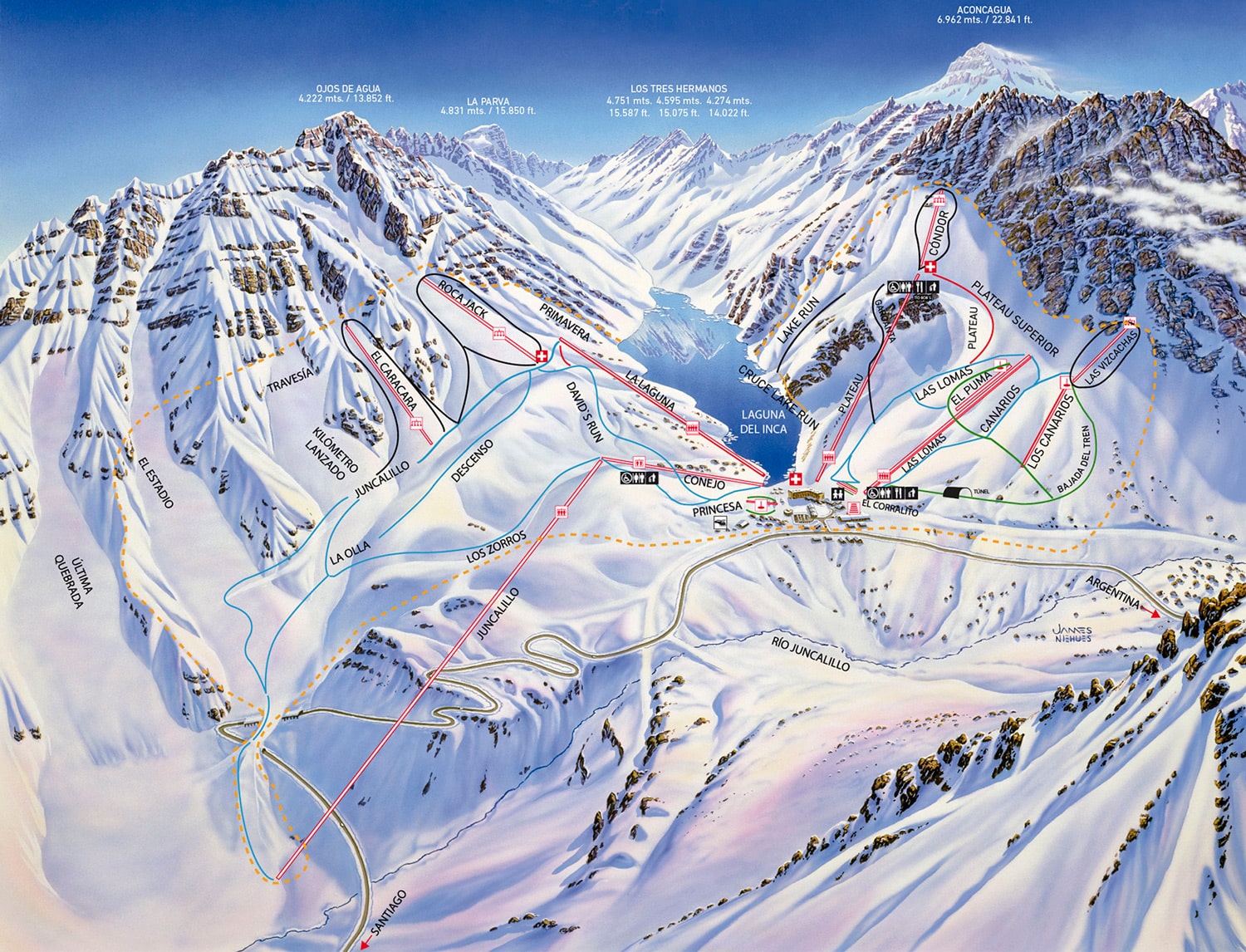
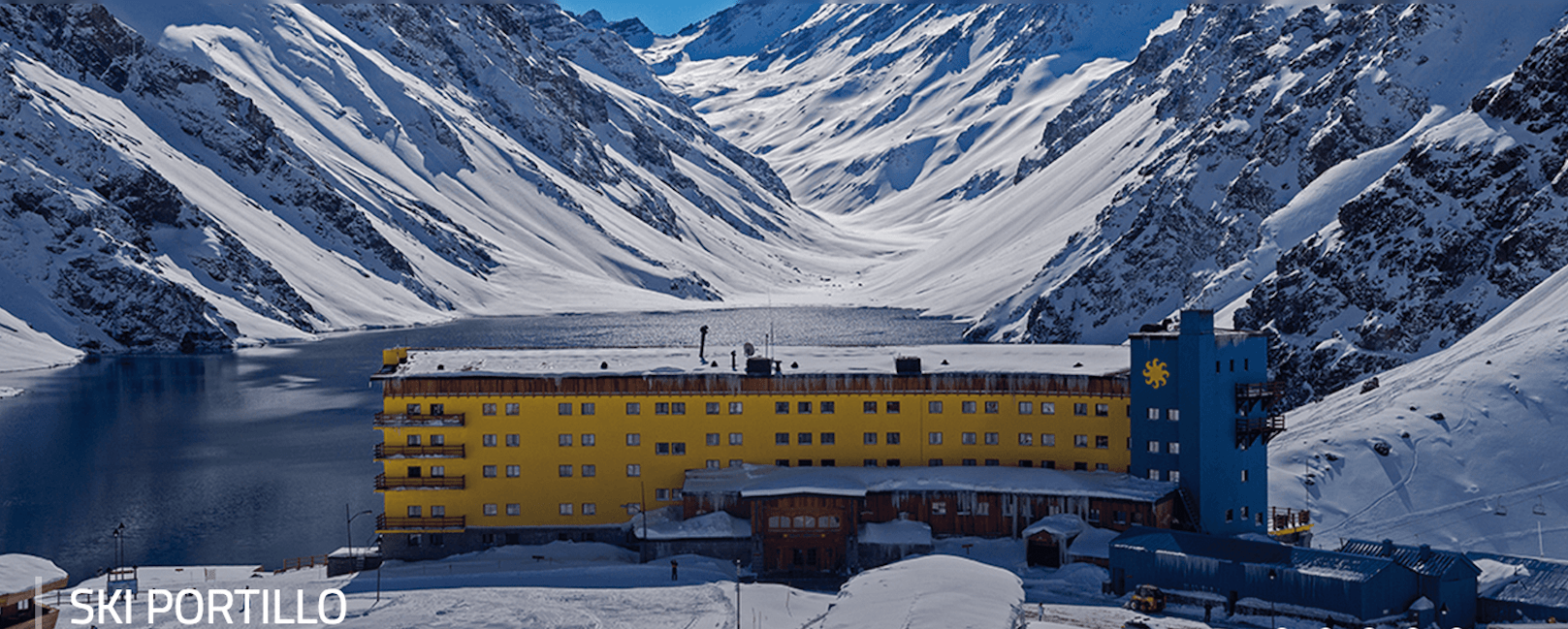
Charlotte Pass, Australia
Norwegian Miners
Named after the European climber Charlotte Adams who first ascended nearby Mt. Kosciuszko, Charlotte Pass was arguably the location of the sport’s origin in Australia. Following the gold rush of California in the 1850s, Norwegian miners moved west (no pun intended) and found themselves settling near a little mining town of Kiandra in New South Wales, Australia. This little town deep in the Snowy Mountain Range was where these Norwegian miners pioneered their skills. In 1909, an ‘Old Hotel’ was eventually built at Diggler’s Creek, only 30 miles from Mt. Kosciuszko.
Viable Rescue Location
Later in 1930, motivated by the tragic loss of several mountain climbers whose rescue was complicated by staging efforts, Charlotte Pass was identified as a viable location. Now with the backing of the New South Wales Government Tourist Bureau, the first 38-bed Chalet was built on Charlotte Pass. The building subsequently burned down, but was again rebuilt as the Kosciuszko Chalet hotel in 1938 and continues today. A modern style T-bar was installed in 1939 and the rest is history.
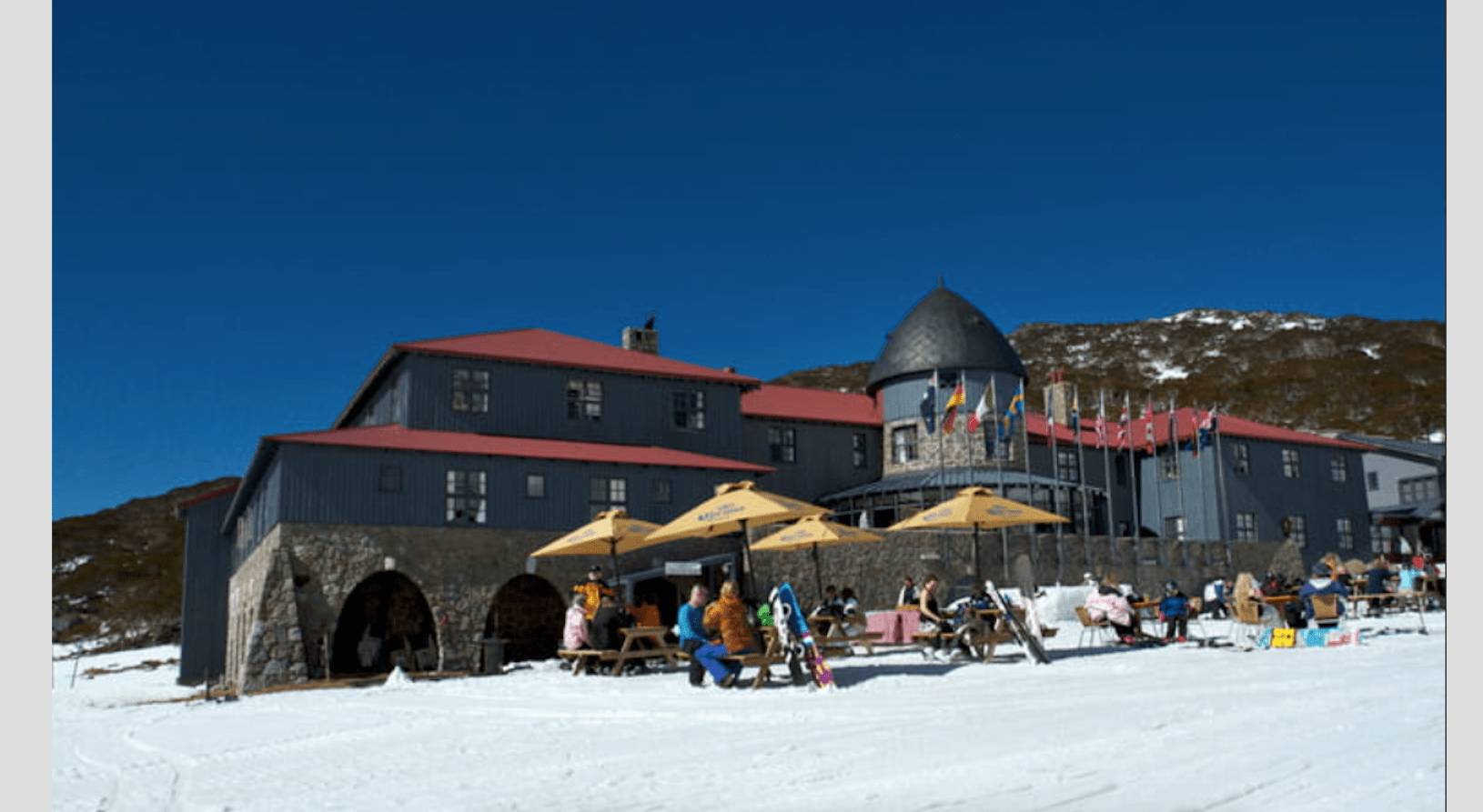
Family Style With Backcountry Excellence
Today, Charlotte Pass Ski Resort is often overlooked by others like Thredbo and Perisher which have more advanced terrain. In contrast, Charlotte Pass offers large beginner areas and is perfectly suitable for those just learning to ski or families with multiple abilities. Charlotte Pass backcountry touring is something special and what they are well known for. They offer virtually endless options off multiple nearby peaks and ridgelines.
Frigid Temps
Charlotte Pass holds the title of Australia’s highest resort but it’s also known for its frigid temperatures, regularly dropping below freezing. This does, however, also translate into one of the most reliable snowpacks of any resort.
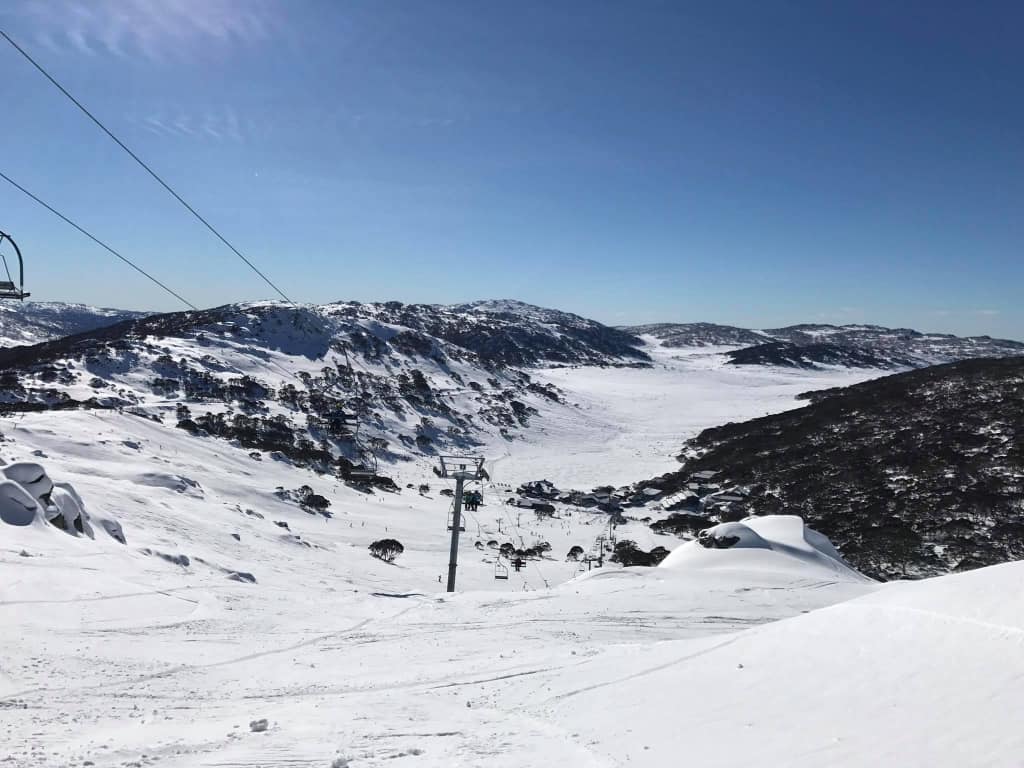
Mountain Stats
- Annual Snowfall (inches): 110 + snowmaking
- Summit Elevation (ft.): 6,410
- Vertical Gain (ft.): 656
- Skiable Acres: 123
- # Trails / Lifts: 24 / 5
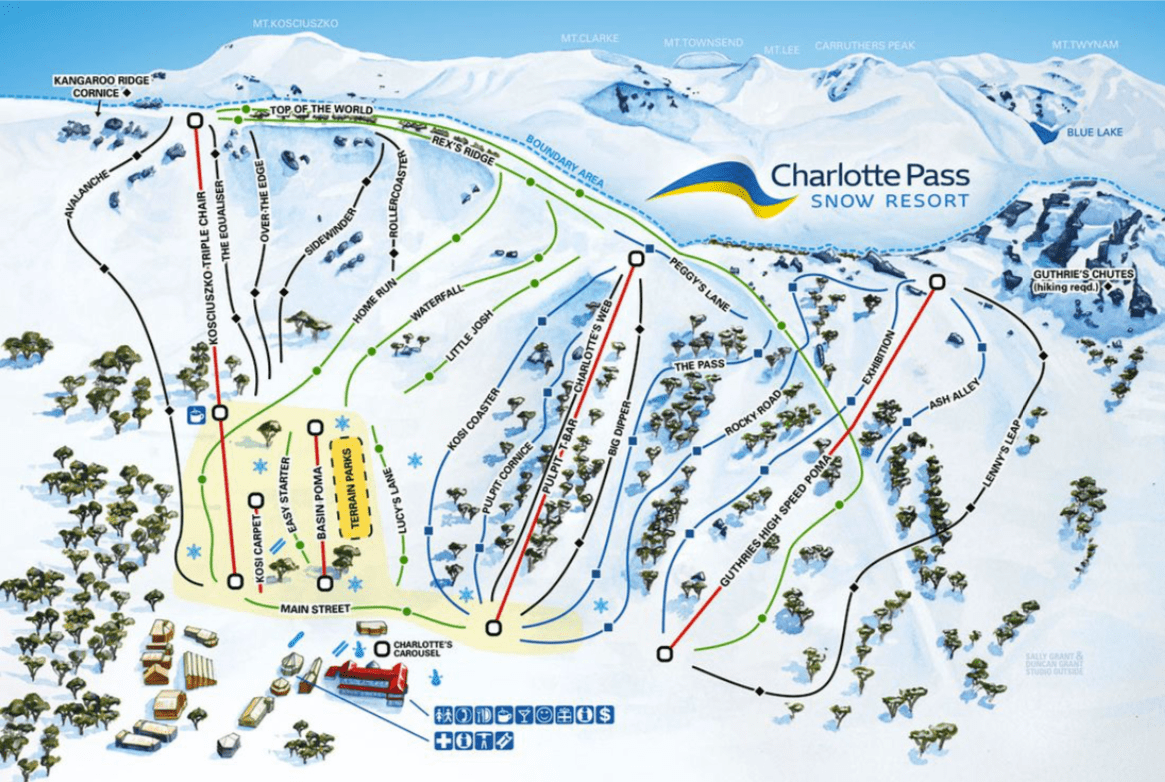
Japan: Major Theodor Edler von Lerch
https://www.snowjapan.com/guides/introduction-to-skiing-in-japan/the-first-ski-areas-and-ski-lifts-in-japan
No Sun Valley? First destination resort in America and first chairlift I believe in the world.